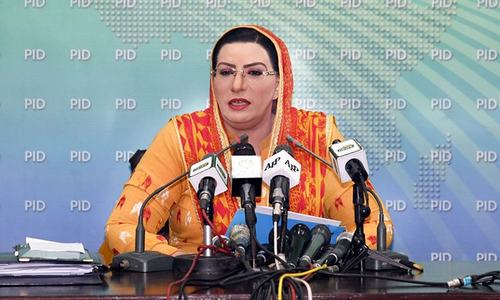Prime Minister Imran Khan on Thursday said that the amendment to the National Accountability Ordinance, 1999, was "a tough decision" but one that had to be made in the interest of the country.
"The decision was difficult because a party that has had a 22-year-long struggle against accountability and is considered strict and is viewed to have this mission, [is under greater scrutiny]," said the prime minister, as he addressed a gathering of civil servants in Islamabad.
"There was a lot of criticism, including by the opposition [..] it was not easy because we had to carry our party too because in a democracy you need to develop consensus within the party and its leadership," he continued.
"Our real aim is wealth creation so the country which is buried under the burden of loans [can be freed]," explained PM Imran.
Read: PM's aide on accountability breaks down amendments to NAB ordinance
The premier said that in the last ten years, Pakistan has mounted a debt of Rs24 trillion.
"It was 6 trillion but from 2008-2018 it rocketed to Rs30 trillion. Half of the tax we collected last year was spent on interest payments.
"The key right now is wealth creation in the country," he reiterated.
PM Imran said that wealth creation will take place when there is industrialisation in the country, when its agricultural output increases and when the housing scheme brought in by the Pakistan Tehreek-i-Insaf, along with its 40 associated industries, takes off.
"For that, our governance system needs to be streamlined so decisions can be made expediently," he said, adding that decisions weren't being made due to a fear of the National Accountability Bureau (NAB).
"The concerns were legitimate because so many were probed over procedural mistakes. So we realised we will need to take this step and offer bureaucrats protection, as well as the business community."
He said that the business community does not fall within the purview of NAB as it is, "because the very definition of corruption is "using public office for private gain".
"if you read the amendment, you will see that it simply provides for NAB to not interfere in their business dealings. And the tax cases are FBR's as it is. They have nothing to do with NAB," said the prime minister.
The government made drastic changes in the country’s accountability law — the National Accountability Ordinance, 1999 — through a presidential ordinance promulgated on December 27.
Under the ordinance, the powers of NAB were curtailed, keeping in view frequent complaints of the bureaucracy and the business community.
Earlier in the week, the government's chief spokesperson, Dr Firdous Ashiq Awan, had said that the government will not bypass the due process to implement the newly promulgated ordinance, stressing that the legislation will be subject to debate.














































